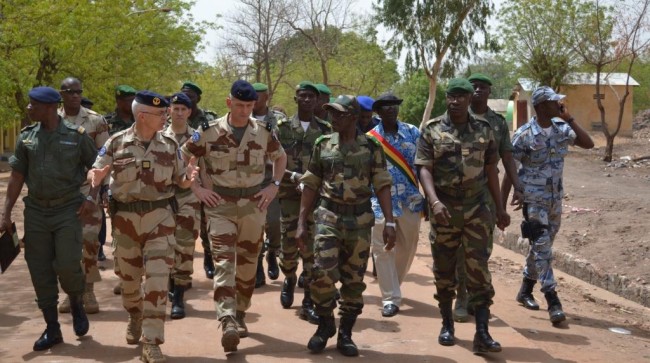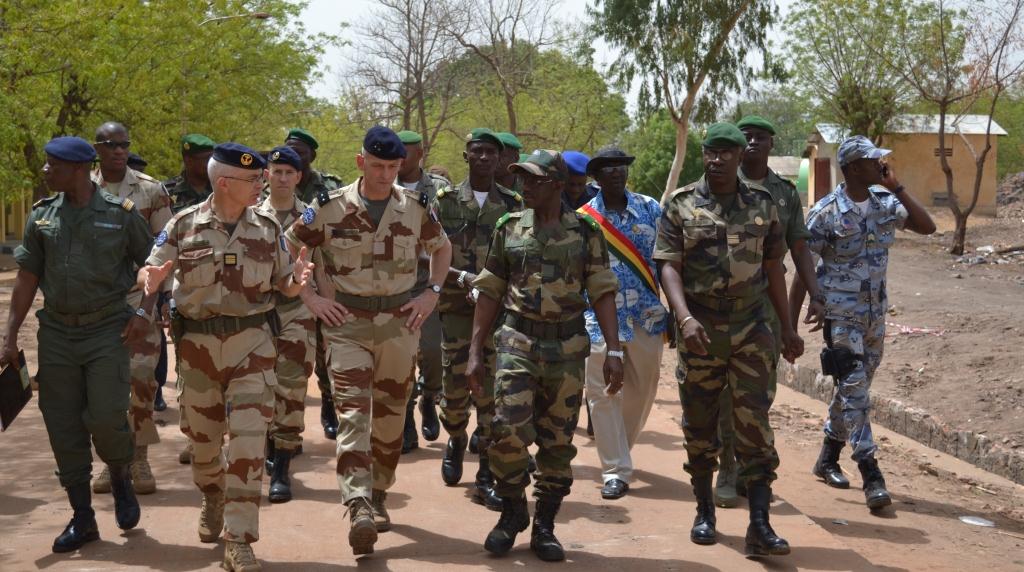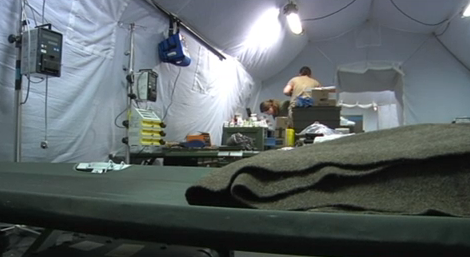The “Waraba” battalion is formed. He leaves Koulikoro. But without drums or trumpets

(BRUSSELS2) The training of the first battalion of 670 men of the Malian army by European forces has been completed. And Koulikoro, the training camp, is emptying. The soldiers are currently leaving the camp for a well-deserved leave of ten days. But without drums or trumpets... The ceremony envisaged for a moment by the Europeans had to be canceled at the request of the Malian authorities.
An internship certificate and not a diploma
The delivery of internship certificates took place yesterday. The ceremony was a little shortened and much less prestigious than initially envisaged by European officials. A dispute has arisen between the Malian military and their political and military hierarchy. They did not get the bonuses or advancements they could have hoped for. The Malian command - the Chief of Staff of the Army - therefore asked EUTM to cancel the planned ceremony which was to take place solemnly with the presence of a number of authorities and diplomatic representations. The word "diploma" is not pronounced. Because at the Malian level, it has a precise meaning. Who says training, says rank promotion and salary increase, which the Malian command did not seem ready for. Their assignment is not yet known, at least not publicly. We first talked about Kidal. But it could just as well be Gao.
"Lions" who can be proud
This "Waraba" battalion was a "test" battalion for European trainers as well as for the Malian army. He also saw a number of European officials pass. I counted no less than half a dozen ministers who went there (French, German, Spanish, British, Swedish...). The instructors are also very satisfied with their "students", "enthusiastic", "committed", "curious", "interested"... Proof of this attention, only one defection has been recorded at EUTM Mali; which is, all in all, rather weak compared to any training. During his visit on May 30, the Malian Defense Minister, General Yamoussa Camara, expressed his satisfaction “ We can never repeat enough that the support of the EUTM was built on the basis of an observation: the inadequacy of the training of our units. This is what made it possible to develop this formidable program to restore our defense tool to take up the torch and ensure that what happened never happens again. ».
A break of a few days
The next battalion formed is being selected. It should arrive by the end of June, around June 24 according to our information, composed of about 500 men. It would come - like the first battalion - from different battalions already formed in order to facilitate diversity and could also include new recruits. This break is also an opportunity for the trainers to take stock of the training, and to adjust the next one. Some trainers return to the country. Several participating countries (France, Nordics, etc.) have, in fact, decided to replace their personnel. The numbers seem assured. And even in excess. " We rather have more staff proposed than necessary staff or even quite simply that we can materially accommodate an officer confides to B2. Koulikoro camp has a limited number of permanent buildings.
Outsourced medical support
On the side of the two sensitive elements of the mission - the protection force and the medical support - the question now seems settled. A new contributing country has made a proposal: the Netherlands, which could offer a platoon/section of 30 or 40 soldiers who will thus support the Belgian offer and thus make it possible to compensate for the envisaged departure of the French. As for the medical evacuation helicopters (Medevac), the solution adopted is that of using an external company, as announced by B2 recently. But a little delay might be. The necessary funding could only be approved by the Athena committee at the end of May and not at the end of April as expected (mainly due to a British blockage. The Belgian Medevac helicopters will then be able to return to the country, with a few days delay , if necessary on the scheduled date (end of June).
Read also:



Comments closed.